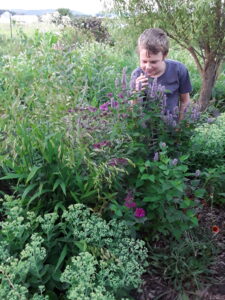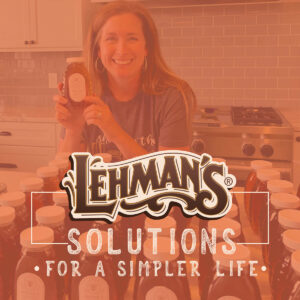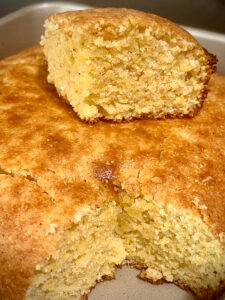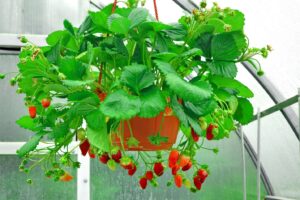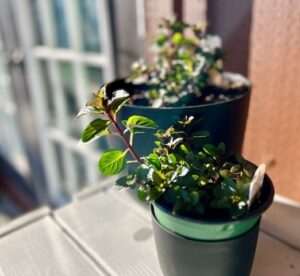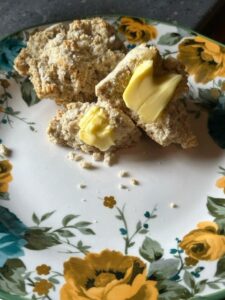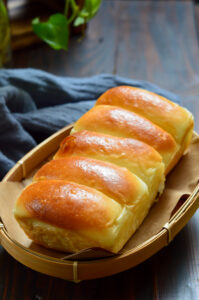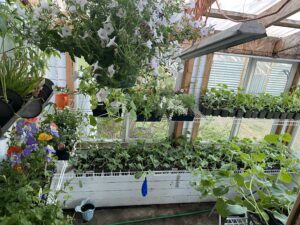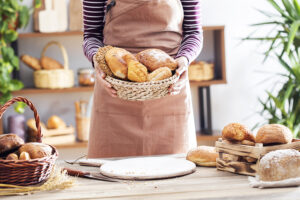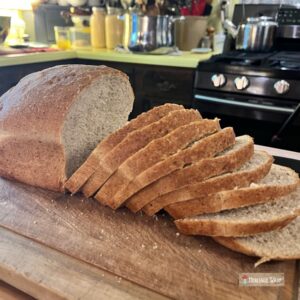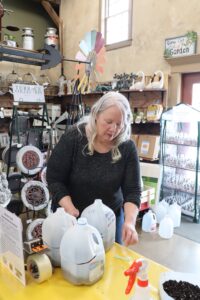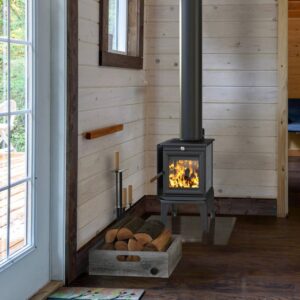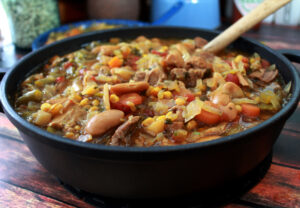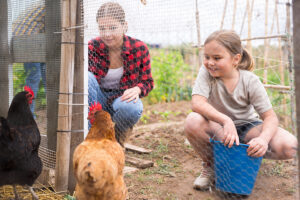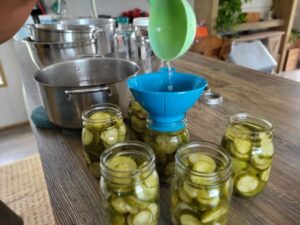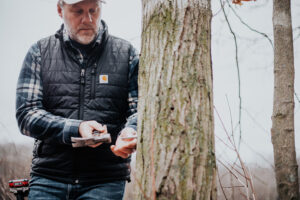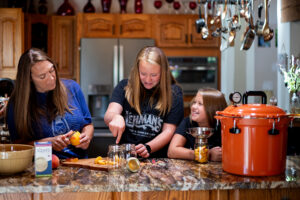Pickling is an ancient art–and science. Nobody’s surprised at that. What folks might be surprised at is that there are people who are researching, making and eating recipes that have their roots (literally) in dishes that were made hundreds of years ago.

Daniel Myers is one of those people. He works as a database programmer, but in his spare time, he and his family are members of a historical research and re-creation organization called the Society for Creative Anachronism (sca.org). Founded in Berkley, CA in 1966, the non-profit educational group focuses on the folkways, practices and technologies of Europe prior to the 17th century. There are branches nationwide.
Myers is nationally recognized in the group for his research, redaction (translation and recreation) and execution of period recipes. He’s shared his recipe for “compost” with Lehman’s–it’s an early pickled dish that he can prove dates to the 14th century. The original recipe follows the redaction.
COMPOST
While the name is less than encouraging, this recipe is basically cooked root vegetables in a sweet vinegrette. If a vegetable or two is unavailable then you can leave them out and add a little more of another instead.
3Â parsley roots
3Â parsnips
3Â carrots
10Â radishes
2Â turnips
1 small cabbage
1Â pear
1/2 tsp. salt
1 cup vinegar
1/4 tsp. pepper
1 pinch saffron, ground
1 cup greek wine (sweet Marsala)
1/2 cup honey
1 Tbsp. mustard
1/2 cup currants (zante raisins)
1 tsp. cinnamon
1 tsp.powder douce (instructions below)
1 tsp. anise seed
1 tsp. fennel seed

Peel vegetables and chop them into bite-sized pieces. Parboil them until just tender, adding pears about halfway through cooking time. Remove from water, place on towel, sprinkle with salt, and allow to cool. Then put vegetables in large bowl and add pepper, saffron, and vinegar. Refridgerate for several hours. Then put wine and honey into a saucepan, bring to a boil, and then simmer for several minutes, removing any scum that forms on the surface. Let cool and add currants and remaining spices. Mix well and pour over vegetables. Serve cold.
Source [Forme of Cury, S. Pegge (ed.)]: COMPOST. C. Take rote of parsel. pasternak of rasenns. scrape hem waisthe hem clene. take rapes & caboches ypared and icorne. take an erthen panne with clene water & set it on the fire. cast all þise þerinne. whan þey buth boiled cast þerto peeres & parboile hem wel. take þise thynges up & lat it kele on a fair cloth, do þerto salt whan it is colde in a vessel take vineger & powdour & safroun & do þerto. & lat alle þise thinges lye þerin al nyzt oþer al day, take wyne greke and hony clarified togider lumbarde mustard & raisouns corance al hool. & grynde powdour of canel powdour douce. & aneys hole. & fenell seed. take alle þise thynges & cast togyder in a pot of erthe. and take þerof whan þou wilt & serue forth.
POWDER DOUCE
Many medieval recipes call for spice mixtures without detailing the exact spices. While it is tempting to assume that each particular spice mixture had a consistent recipe, there is evidence of substanial variation for different times, regions, budgets, and cooks. The recipe below is for one of the more commonly called for spice mixtures. I strongly encourage altering it to suite your own tastes.
3 Tbsp. ginger
2 Tbsp. sugar
1 1/2 Tbsp. cinnamon
1 tsp. cloves
1 tsp. nutmeg
Source [Le Ménagier de Paris, J. Hinson (trans.)]: HIPPOCRAS. To make powdered hippocras, take a quarter-ounce of very fine cinnamon, hand-picked by tasting it, an ounce of very fine meche ginger and an ounce of grains of paradise, a sixth of an ounce of nutmeg and galingale together, and pound it all together. And when you want to make hippocras, take a good half-ounce or more of this powder and two quarter-ounces of sugar, and mix them together, and a quart of wine as measured in Paris. And note that the powder and the sugar mixed together make “duke’s powder”.
Curious about historical cooking processes and practices? Visit Dan’s website for more information. http://medievalcookery.com.

